When the soft God of Sleep, with easy flight,
Descends, and draws behind a trail of light.
Thou, Palinurus, art his destin’d prey;
To thee alone he takes his fatal way.
Aeneid, Book V, trans. John Dryden
A couple of weekends ago a serendipitous invitation from a friend from Salerno to her beach house took me to Capo Palinuro, a promontory in the Cilento. The Greek origins of the epithet, “where the wind turns”, refer to the treacherous nature of the eddying waters long known by sailors who assigned also the name of a siren, Molpe, to the rock. The name of the siren was given to a settlement founded on the promontory in the sixth century BCE as an Ionian colony.
The beach close to the house is beautiful and wild, and in late May was still deserted. The view towards Cape Palinurus naturally had me thinking of the Roman interpretation of the topography. For Virgil this stretch of perilous navigation is the place of the death of Palinurus, the doomed coxswain of Aeneas’ ship.
Having fled the flames of Troy, Aeneas and the other survivors embark upon the sort of meandering journey across the Mediterranean so favoured by classical literature. The Aeneid is a sort of Roman fan-fic spinoff of Homer both rooted in the evocative misty tales of Mediterranean legend and in the very tangible propaganda of Augustus during whose reign it was written. I first read it at school as part of the Latin GCSE syllabus when I was fourteen or fifteen and have loved it more than I can say ever since.
Setting sail from Asia Minor, and travelling by way of Thrace and Crete; Sicily and Carthage, Aeneas and his band eventually make their way up the coast of the Tyrrhenian. Neptune, “the mighty Ruler of the Main”, requires the sacrifice of one of Aeneas’ men to guarantee their safe passage to make land in Italy:
“Your fleet shall safely gain the Latian shore;
Their lives are giv’n; one destin’d head alone
Shall perish, and for multitudes atone.”
It is the poor boatman, Palinurus, who is destined to perish for the greater good. Valiantly he fights against divinely bestowed somnolence, but is powerless against the wrathful god:
[…] his fasten’d hands the rudder keep,
And, fix’d on heav’n, his eyes repel invading sleep.
The god was wroth, and at his temples threw
A branch in Lethe dipp’d, and drunk with Stygian dew:
The pilot, vanquish’d by the pow’r divine,
Soon clos’d his swimming eyes, and lay supine.
Aeneas took control of the boat, sailing to safety while mourning the loss of Palinurus:
Sure of his pilot’s loss, he takes himself
The helm, and steers aloof, and shuns the shelf.
Inly he griev’d, and, groaning from the breast,
Deplor’d his death; and thus his pain express’d:
“For faith repos’d on seas, and on the flatt’ring sky,
Thy naked corpse is doom’d on shores unknown to lie.”
They were three delightful days of swims, sunsets, good conversation, and long suppers—buffalo mozzarella and beer; sea bream and Fiano; many tomatoes (for health)—under an ancient olive tree with an ever-changing cast of assorted folk dropping in. One of these pals was called Paride, because people in Southern Italy sometimes are and because the hazy evocative legend—ancient when it was harnessed by Virgil—really is all-pervasive. As I lay on the beach I read the Song of Achilles for added atmosphere, and when I looked up I could have sworn I saw Aeneas’ boat on the horizon, scudding towards Cumae.




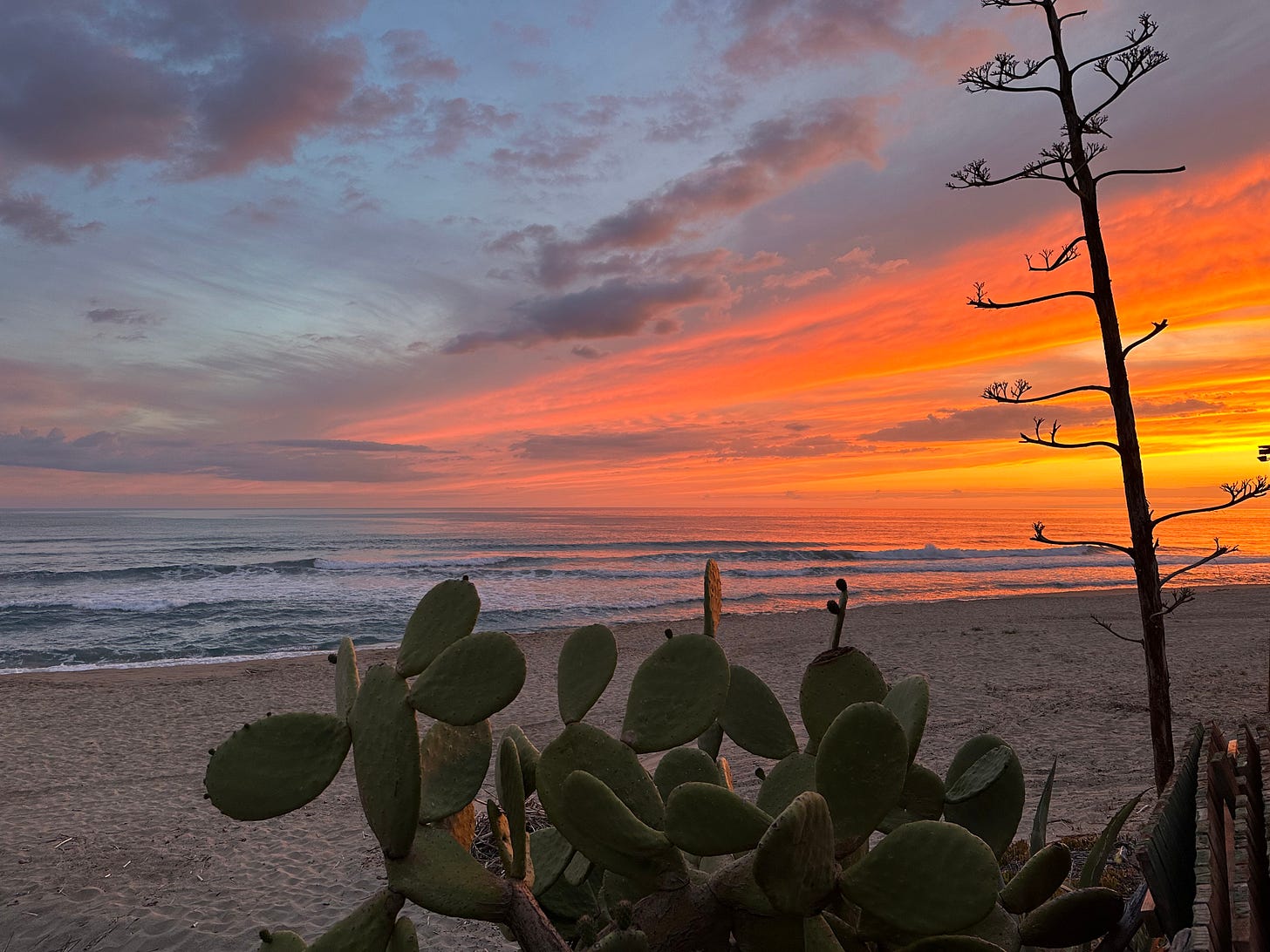
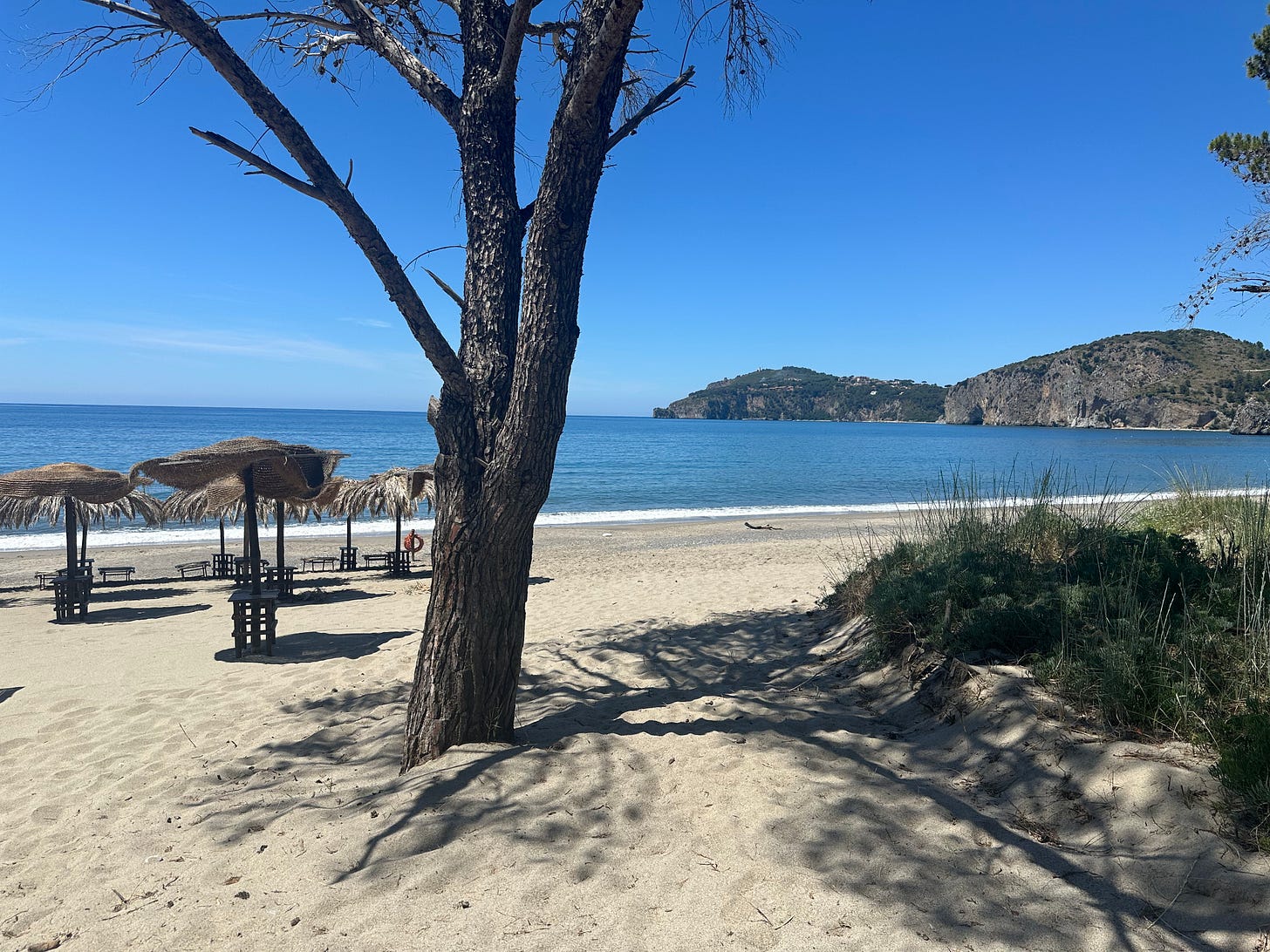
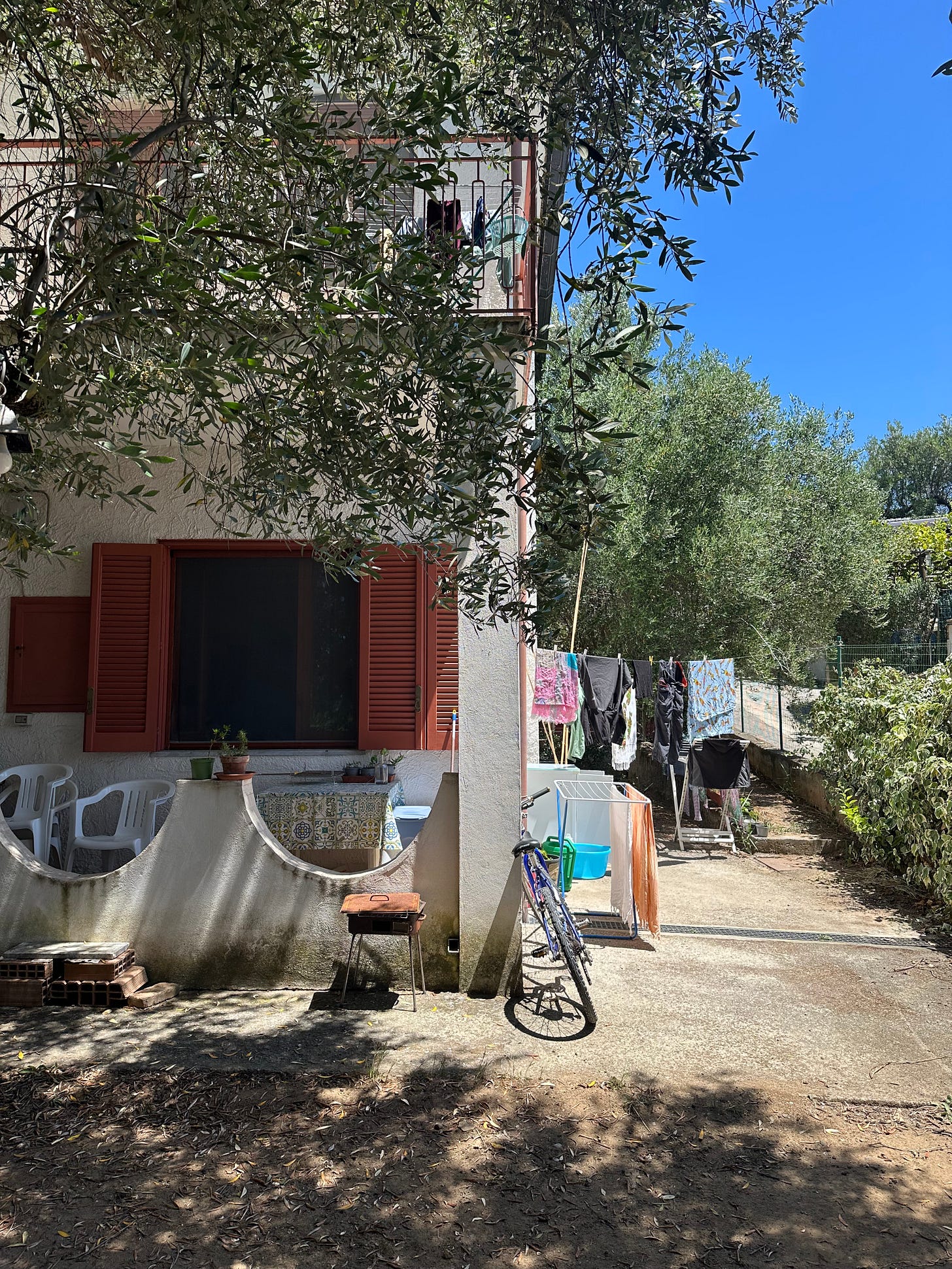
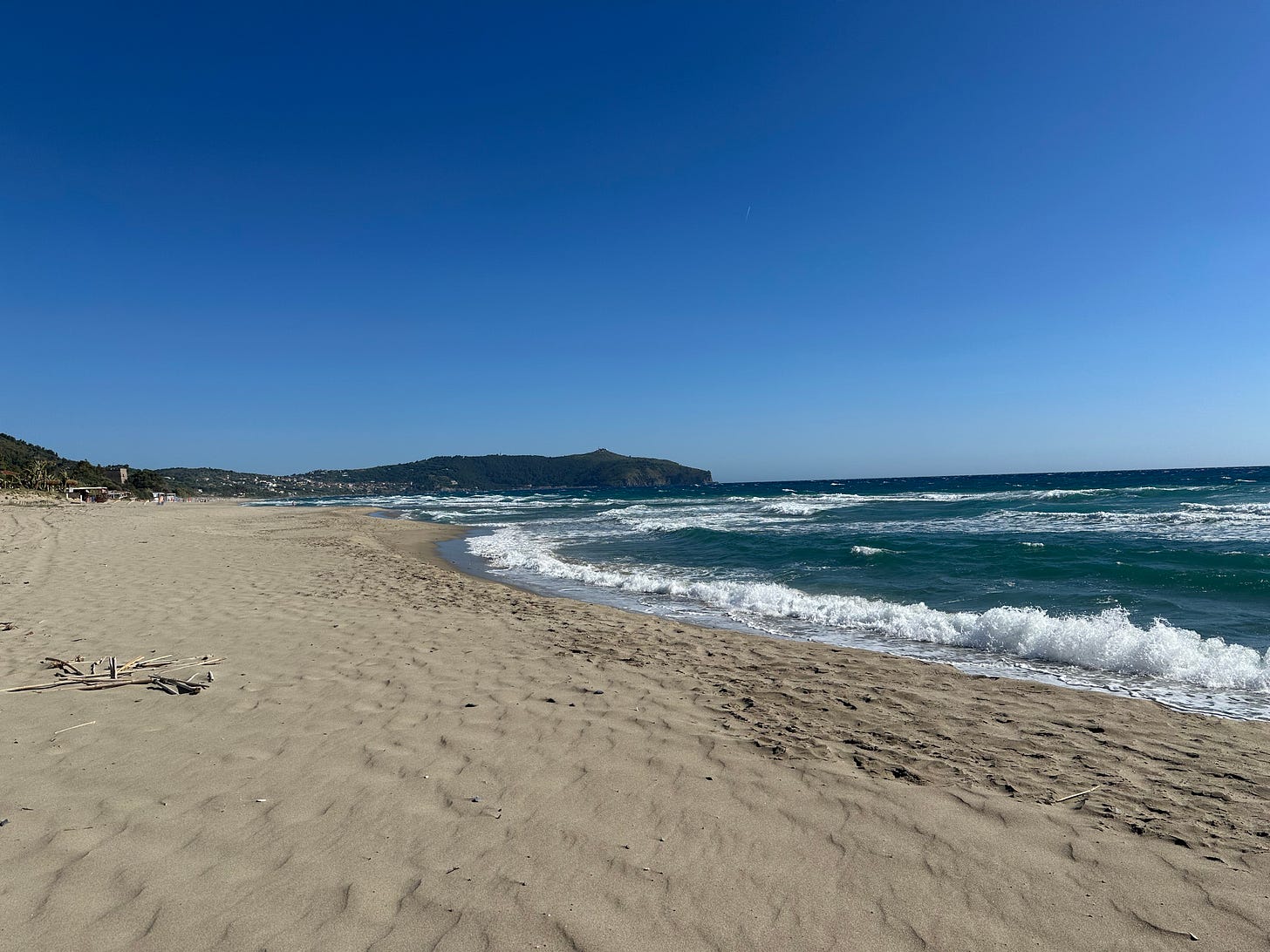
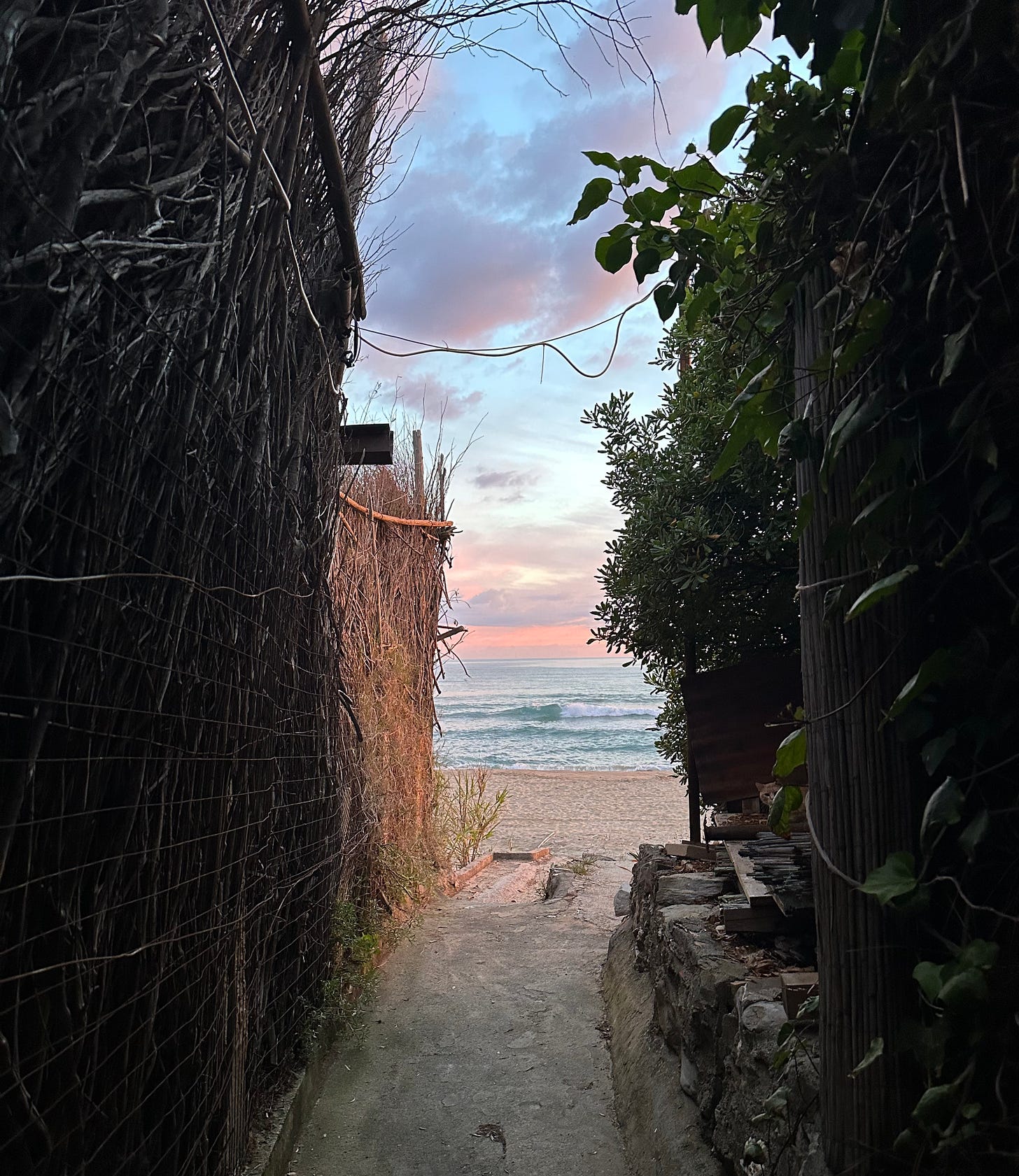
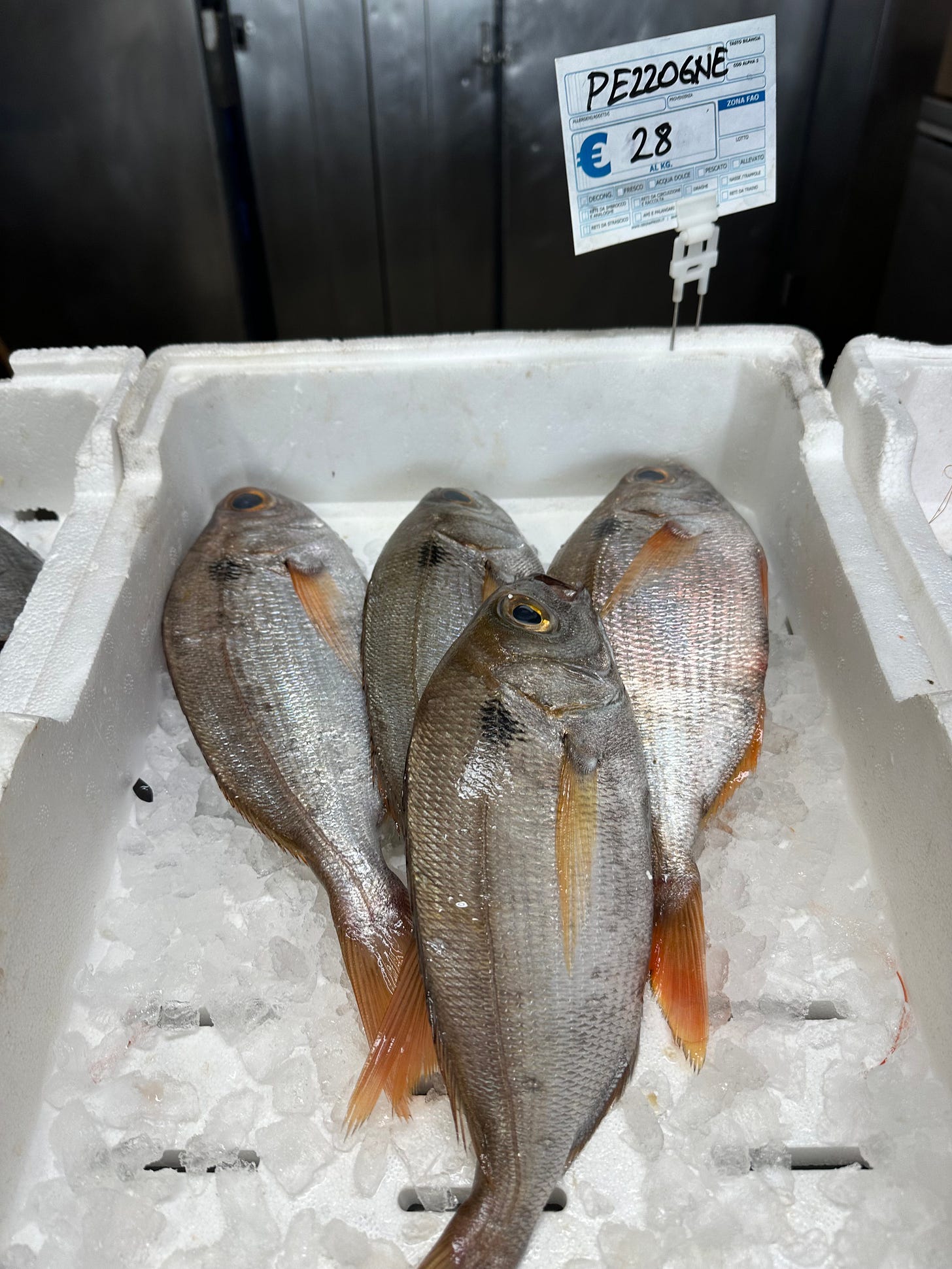
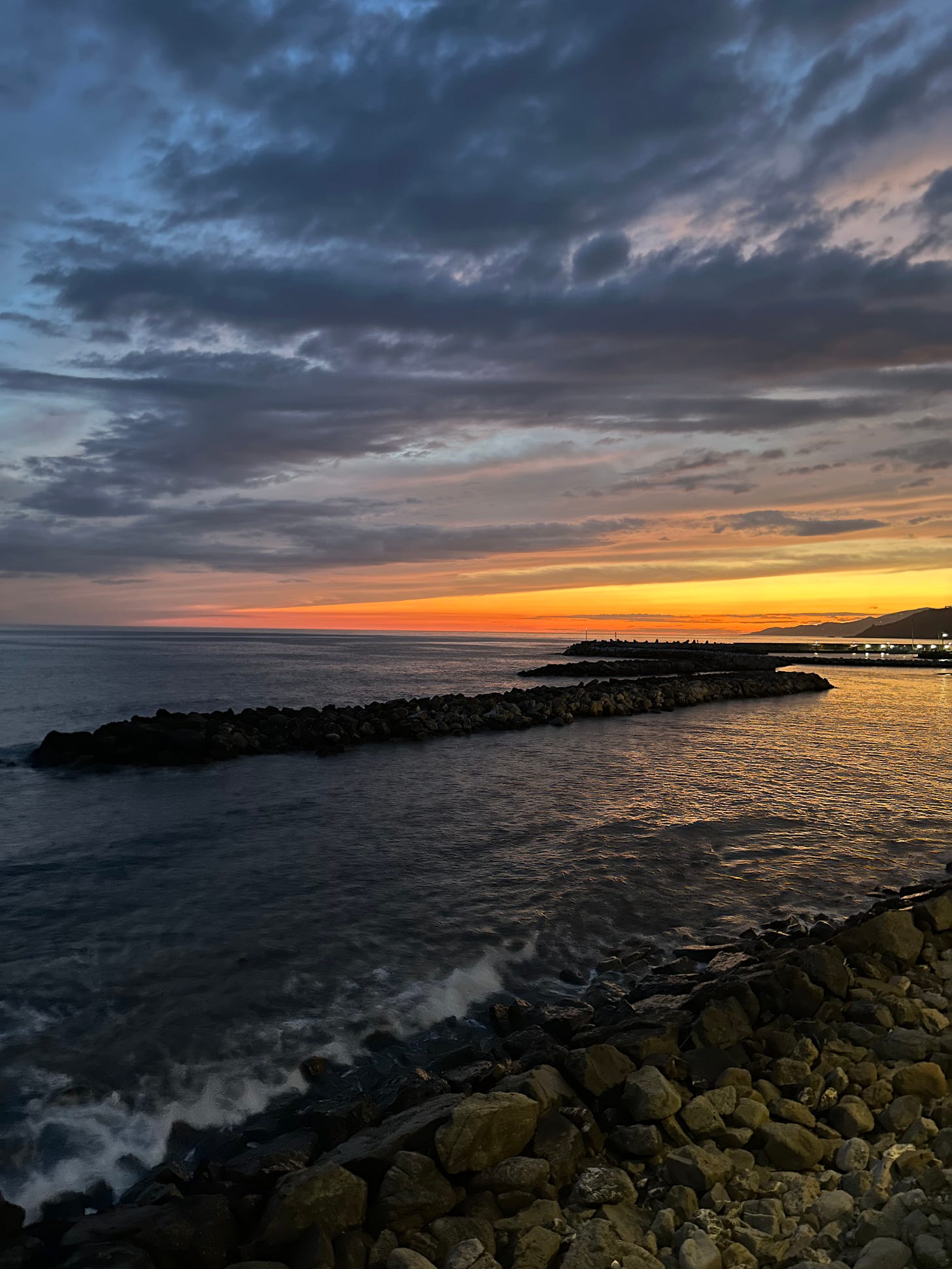
Agnes, your recommendation that we visit San Stefano Rotondo and Forma Urbis vastly improved our 4 day stay in Rome. Forma Urbis and its park are now in our favorite places. Andy and Cola
How is Aeneas reconciled with the she-wolf and the twins for having founded Rome?